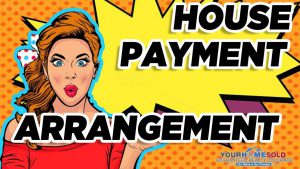If you like this video, please share, subscribe and like and I would love to read your comments on this topic. Thank you for watching!
Barb Schlinker Radio Show
719-301-1802
Your Home Sold Guaranteed Realty Colorado
#coloradosprings #yourhomesoldguaranteedrealty #barbschlinker #realestatevoice
Barb, The CARES Act was hastily passed because of the COVID19 Outbreak, there is a provision for people with a mortgage to skip their house payments for up to 1 year, allegedly with no harm to their credit. Howa Does it Really Impact People who Skip Their House Payments?
- CARES Act – The law allows for people who have home loans backed by:
- Fannie Mae – Conventional Loans
- Freddie Mac – Conventional Loans
- FHA – FHA Loans
- VA – VA Loans
- To skip payments for up to 1 year without giving proof of a hardship!
- As of last week: 4.75 MILLION people had done so, representing about $1.04 trillion of unpaid principal according to Black Knight.
- Because the companies servicing the loans, still HAVE to pay the “INVESTORS” people to give the month for loans, for at least 4 months before the government takes ownership of the loan…it resulted in homes loans becoming less available because lenders have less funds to work with…
For certain types of borrowers: They are:
- A credit score below 660 (was 580)
- Cash-out Refinances
iii. Home Equity Lines of Credit got harder to get
- Jumbo Loans – over $510,400 in this market
- Self Employed People
- While a financial hardship during COVID 19 is understandable, the law does not require ANY proof of hardship.
- In the case of loans that are backed:
- Fannie Mae and Freddie Mac – when the borrowers start paying their mortgages again…the missed payments just get tacked on to their loan balance and they DON’T have to pay it back until they sell the home, pay it off or refinance.
- Same as above for FHA loans
- For VA loans – Borrowers WILL have to repay the missed payments. How those missed payments will be paid back, at this time is unknown.
About 40% of loans are private funding that do not fall into the Fannie, Freddie, FHA and VA guarantees. That effectively means they may NOT fall under that law.
To put this into perspective, I was in business during the mortgage meltdown, I helped at least 100 people avoid foreclosure. I spoke with many others. It’s a huge fear for home borrowers to miss a house payment. They often think…any day, someone is going to knock on my door and kick me out of the house.
Legally that cannot happen but I have heard of lenders threatening that to homeowners to scare them out of leaving when the payments do not get paid overtime.
So, for right now. Those things should not be happening.
Per the law…Lenders cannot show a mortgage late or charge late fees for missed payments. There are some other consequences we will discuss when we come back…
What are some things people should be concerned about when having to skip their payments?
- If a home borrower asks their lender to skip payments, they put a NOTE on the credit report. That note will prevent that person from getting ANOTHER mortgage:
- “Eg: Lender recommended for this person to take advantage of the federal forbearance program. Mr Liestman, 38 years old, reluctantly agreed, only to quickly back out BEFORE missing any payments”
- When he went to buy a home in another area “basically, there was a notch mark on my credit report saying the word ‘forbearance”…”It totally stopped our plans and turned our liv s upside down!”
If you do not know who owns your home you can look it up online at this site:
- Fannie Mae lookup tool
https://www.knowyouroptions.com/loanl...
- Freddie Mac Loan Lookup
https://ww3.freddiemac.com/loanlookup/
For FHA and VA you should know by looking at your mortgage statement.

